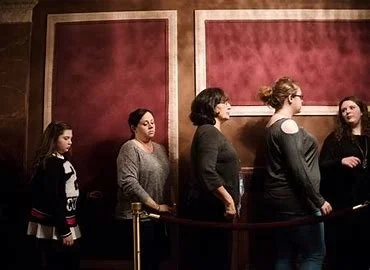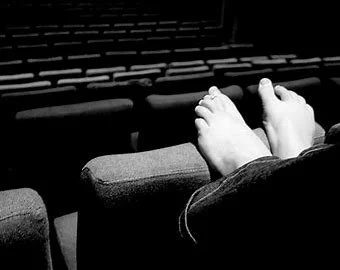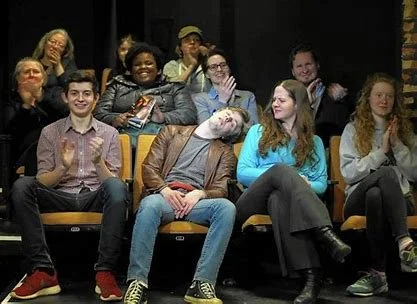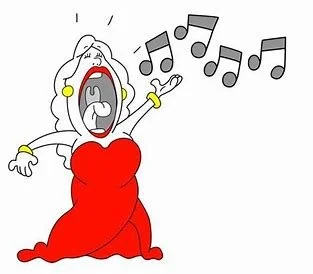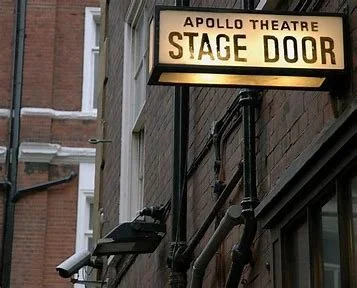THEATRE ETIQUETTE: Broadway and Beyond! Also, other important questions!
If you have been to the theatre lately, Broadway or elsewhere, you might have noticed that the behavior of the audience has grown more informal along with the times -- this change is nothing new. Like everything else, manners evolve over time (my musical, HOW RUDE, is entirely about that). However, there are some things that have not changed, and one of them is common courtesy. Simply stated, going to the theatre means following the Golden Rule: do unto others as you would have them do unto you. Here, then, is a simple guide to modern theatre etiquette for both beginners and veterans. Enjoy the performance! Click here for an awesome link about Theatre Etiquette!
Theater Etiquette and Appropriate Manners -- Basic Broadway Behavior
1. ARRIVE ON TIME: Assume you are going to be late. It is better for you to spend an extra twenty minutes in the theatre lobby than it is for you to climb over rows of patrons who were on time.
2. GO TO THE BATHROOM: Broadway theatre etiquette says that you go to the bathroom right before the show and during the intermission. Making an entire row of strangers stand so that you can excuse yourself disturbs them, the two rows behind them, and anyone else who has been needlessly distracted.
3. NO TALKING. Can I talk to my date? Can I talk to the person behind me? Good questions! Don’t! Unless you are specifically invited to do so by a performer, keep mum. The minute an actor first takes the stage, begin actively listening! Talk during intermission.
4. TURN OFF YOUR PHONE: Texting, taking pictures, talking, surfing, listening to messages, etc., are all a distraction to the rest of the audience and can even get you in trouble with the actors. The best thing you can do when attending a show is to shut your phone off before the play begins; that way, you will avoid the temptation!
5. TAKE YOUR HAT/HEADPHONES ETC. OFF! If you are wearing anything on your head that will obstruct the view of those who are seated behind you, you should remove it before the show begins. Watch the show, or you might miss something interesting that happens on stage!
6. OPEN YOUR CANDY: Please be sure to unwrap your candy before the show begins. The sound of the cellophane being removed is annoying and rude. And by the way, as other bloggers have already mentioned, unwrapping it s-l-o-w-l-y does not help the situation. Come to the show and get your treats ready!
7. STICK TO YOUR ASSIGNED SEAT: an usher will show you to your seat. They also might encourage you to move to another one if the house is not full. If you decide to move near the stage, you might find yourself moving again when latecomers arrive. If you need a special seat, call the box office to make arrangements.
8. KEEP YOUR FEET OFF THE SEATS AND DON’T CLIMB OVER THEM. DON’T KICK THEM: Sometimes, we show good etiquette by taking care of those who are sitting around us. How can our fellow audience members pay attention to the play if they are distracted by rude theater attendees misbehaving in a darkened theater?
9. LEAVE YOUR CRITICAL ANALYSIS AT HOME: Attending a Broadway show doesn't mean you are a critic. Don't ruin the show for those around you by loudly criticizing it from your seat. If you want to write a review and share it, do so, but consider the feelings of those who are enjoying themselves. Keep conversations to the intermission!
10. DON’T BRING THE BABY OR THE TODDLER: You can't expect a three-year-old to have appropriate manners when attending theatre! Leave them at home with a sitter! Unless the advertised show is marketed to very young audiences, they will be a horrible distraction to those seated around them.
Top Audience Member Annoyances when attending the theatre.
11. DRUNKS: Being a bit tipsy is fine. Being drunk and everything that goes with it is a bad look for any audience member. Do you want to sit next to that when attending a live Broadway show?
12. SLEEPERS: If you are sleepy, stay at home. Nodding off on the shoulders of those who are unluckily seated around you is a distraction. How do you expect an audience to enjoy a show if you are snoring? Besides, you might have missed something else important during your nap.
13. EATERS: Eating a meal is not part of the theatre. It is smelly and inconsiderate to those sitting around you. And what if your food ends up in someone else's lap? Refrain from eating altogether during the show.
14. COUGHERS: Do you have a little tickle in your throat? Bring lozenges, unwrap them, and have them ready to go. Hacking during a play or musical is annoying to both those attending the show and the performer. Spray it, suppress it, or stay at home.
15. SINGERS. Singing that happens on stage is fine, but if YOU want to sing, don't! You may want to sing! The audience has paid a great deal of money to hear professionals flex their vocal muscles, so unless there is audience participation and you have been invited to sing along by the cast, limit your crooning to the shower.
Practice good Theatre Etiquette -- Audience Participation!
16. APPLAUD LIKE A NORMAL PERSON: Applause is your way of acknowledging your appreciation for a theatre experience. You are saying, "I like those people up onstage". An audible reaction to something interesting is to be expected. Practice good Broadway etiquette, and don't scream your head off, even if there are overreactions from other audience members. If you are in an audience so full of appreciation that they stand, you should do so as well.
More on How to Applaud: instructions.
17. DON’T HOG ARMRESTS: personal space is at a premium in the theatre. Theatre patrons with already limited legroom want a bit of space. Share! Don't hog both armrests! Also, don't hang your coat on the back of your seat! Don't step on, squash, or lean into your neighbor like you deserve more space than they do.
18. CONTROL YOUR REACTIONS: attending a live performance is about what is onstage, not what is happening to you. Please refrain from behavior that takes the audience's attention away from the show onstage.
The End of a Broadway Show -- Curtain Call Rules and Regulations!
19. DON'T LEAVE DURING THE CURTAIN CALL. The end of a performance is still part of the show. Consider the hard-working performers up onstage. A live show is not like a movie: the actors are alive on stage, and standing ovations are fun!
20. DRESS CODE FOR BROADWAY: RULES AND REGULATIONS -- Seeing a performance is an event. Dress for it! Though there is no official dress code for Broadway, people do dress up! Gym shorts, flip-flops, tank tops, etc., all have their place, but usually not at an evening of theatre. This isn’t about fashion – it’s about contributing to the tone of the event.
Here are some great ideas for dressing for the theatre!
Theater Etiquette and the Stage Door!
There is the show in the theatre, and the show that happens outside! Theater newcomers may be unaware that theatre etiquette is still important when the show is over, and they are hoping to catch a glimpse of one of the performers as they leave the stage door. Among common questions is "how do I address the stars when they leave the theatre"? An obvious rule of good etiquette is that it is important to be respectful! Feel free to have honest reactions -make noise -- but don't be a jerk. But what is theatre etiquette and behavior at the stage door?
Practice good and appropriate manners and they just MIGHT talk to you! Everything that happens at the Stage Door is at the discretion of the performer. Sometimes they will stop and say hello, sign autographs, or pose for a picture, but other times, they might rush into a limo. It is insulting to the hard-working performers to insist that they give you a private performance after the performance. Don't touch the actors! On the other hand, don't be shy and hang so far back they can't see you!


